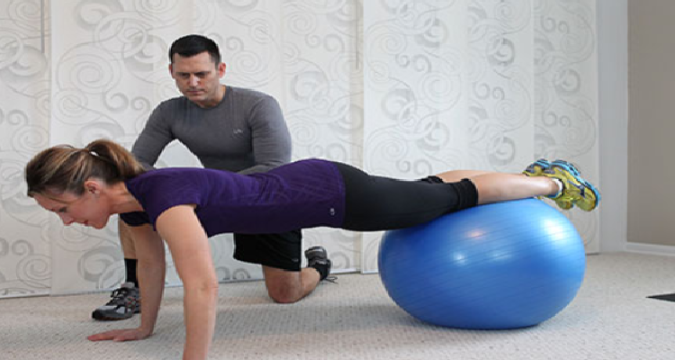
Preparation is the backbone of success in any sports tournament. Whether you’re competing in a local match or a major tournament, physical conditioning, mental readiness, and strategic planning are essential. Taking the right steps before a big game can make a dramatic difference in your performance and confidence on the field. Here are essential tips to get you game-ready, so you can play at your best when it counts.
1. Physical Conditioning: Building Endurance and Strength
Tournament play demands high energy and stamina. Conditioning your body well in advance is essential for a strong and lasting performance. Begin by focusing on both cardiovascular and muscular endurance. Cardio workouts, such as running, swimming, or cycling, build endurance, enabling you to sustain energy levels throughout the match. Strength training is equally important, as it improves your power, agility, and balance.
Remember, consistency is key. Training in short bursts close to the game will not yield optimal results. Establish a routine that includes strength training exercises targeting major muscle groups, and incorporate drills that mimic game movements to improve muscle memory. It’s also essential to work on flexibility through activities like yoga or stretching, as this can prevent injuries and improve your overall range of motion.
2. Skill Refinement and Game-Specific Drills
While general fitness is crucial, nothing beats the benefits of sport-specific practice. Sharpening the skills you’ll use in the tournament is one of the most effective ways to prepare. Allocate time to practice individual techniques, such as passing, shooting, or dribbling in team sports, and refine your swing, throw, or serve if you’re in a racket or bat-based sport. Working on specific techniques you’ll need on game day ensures that they feel natural and automatic under pressure.
Create a practice plan that includes drills simulating game scenarios. For example, if you play soccer, practice dribbling in tight spaces or taking quick shots on goal. Practicing under game-like conditions prepares you for the intensity and speed of the tournament environment, enhancing your confidence and reaction time.
3. Mental Preparation: Building Focus and Resilience
Mental readiness is as important as physical conditioning. A strong mind can keep you focused, adaptable, and resilient when facing the pressures of competition. Visualization is a powerful tool athletes often use to imagine their best performance. Spend a few minutes each day visualizing yourself performing well—see yourself scoring a goal, making a precise shot, or completing a successful play. This can help reduce anxiety, increase confidence, and create a positive mindset leading up to the tournament.
Setting goals is another useful strategy. Break down your aspirations into smaller, achievable targets that you can aim to meet during the game, such as completing a set number of successful passes or hitting a specific speed or distance. Focusing on these objectives will keep you grounded and reduce performance anxiety. Additionally, incorporating breathing exercises or mindfulness techniques can help you stay calm and focused, especially during high-pressure moments in the game.
4. Nutrition and Hydration: Fueling Your Body Right
What you eat and drink has a direct impact on your performance. In the days leading up to the tournament, focus on eating a balanced diet with plenty of complex carbohydrates, lean proteins, and healthy fats. Carbohydrates are crucial for energy, while protein supports muscle repair and recovery. Avoid heavy, greasy foods that can slow you down and may cause discomfort during play.
Hydration is equally important. Start hydrating a few days before the event, not just on game day. Water is essential, but you may also consider sports drinks with electrolytes, especially if you’ll be playing for extended periods. On game day, eat a light, easily digestible meal around two hours before the match to give you lasting energy without weighing you down. A simple meal could include something like whole-grain toast with almond butter and a banana or a bowl of oatmeal with berries.
5. Rest and Recovery: Prioritizing Sleep and Downtime
Rest and recovery are fundamental to performing at your peak. Leading up to the tournament, make sleep a priority by getting at least seven to eight hours a night. Good quality sleep allows your body to recover and restores your mental focus. Avoid high-intensity training the day before the event, as this can leave you feeling fatigued. Instead, focus on light activity, like stretching or going for a relaxed walk, to keep your muscles loose and ready.
Recovery also means giving your mind some downtime. Engage in activities that help you relax, whether it’s reading, meditating, or listening to music. Avoid overly stressful situations or activities that might drain your mental energy.
6. Positive Mindset: Embracing the Competition
Finally, adopt a positive and growth-oriented mindset. Embrace the competition as an opportunity to learn, improve, and showcase your skills. Remind yourself of the hard work you’ve put into your preparation and focus on enjoying the experience. Embracing both successes and mistakes as part of the journey will help you stay motivated and maintain perspective, win or lose.
By combining physical conditioning, skill practice, mental resilience, proper nutrition, rest, and a positive attitude, you can step into your tournament feeling prepared and confident. So get out there, give it your all, and remember—you’ve already mastered the game by preparing for it.